Golden Triangle with Khajuraho
- 10 nights / 11 days
- Delhi – Jaipur – Agra – Orchha – Jhansi – Khajuraho – Varanasi
The most popular tour Golden Triangle of India extending further into deep insights & rich cultural, heritage, traditional and spiritual existence of ancient India!
Day 1: Arrive New Delhi - The capital city
Traditional welcome - Atithi Devo Bhava (Guest is god) by garlanding on arrival at Delhi international airport by Travel Pals executive. Transferred in your exclusive air-conditioned car to your hotel for immediate check-in. Day free to relax and acclimatize.
Day 2: New Delhi
After breakfast in hotel introduced with your pre-appointed guide to enjoy a tour of the historic city of Delhi. The city where one can experience the influence of the many rulers who ruled this region, a city built and destroyed and re-built over seven times.
The guided tour takes you to the monuments that depict the different eras. The tour includes visit to the magnificent Red Fort (exterior), the Jama Masjid - one of the Asia's largest mosques, enjoy the cycle rickshaw ride in the narrow by lanes of Old Delhi visiting Chawri Bazar, Dariba Kalan (silver market) witnessing the century old business markets. It is the largest wholesale market in Asia. Later visit Rajghat - the memorial to Mahatma Gandhi - the "Father of the Nation".
Afternoon tour of New Delhi to include Humayun's Tomb, drive past Rashtrapati Bhavan (the residence of President of India), Parliament Building and visit India Gate, a memorial to the 82,000 soldiers of the Indian Army who died in the First World War. End the day with a visit to Qutab Minar - 73 mt. tall minaret which will leave you spell-bound.
Day 3: Delhi - Jaipur (By road - 260 Kms / 5 hours)
Breakfast at hotel then, driven south of Delhi to the 'Pink city of India' - Jaipur.
Day 4: Jaipur
After breakfast, a guided excursion to Amer Fort by a 4x4 open jeep (Willy or the Indian version).
Later visit the City Palace Museum Complex to witness the grandeur of royal lifestyle by visiting the display galleries of textiles & fabrics, paintings & artwork, arms & ammunition gallery and enjoy sumptuous food at the City Palace Cafe (optional) & Jantar Mantar - the observatory having instruments from 1728 AD for measuring celestial planet & star positions.
Also, enjoy the view of Hawa Mahal from one of the cafes across.
Evening enjoy walk through the colorful bazaars of the city. One can also experience the famous block printing at the nearby workshop. Jaipur is also famous for its Gems & Jewelry. One can shop endlessly as this place is a shoppers paradise on this tour.
Day 5: Jaipur - Fatehpur Sikri - Agra (By road - 250 Kms / 5 hours)
Driven to Agra, city of the Seventh Wonder of the World - Taj Mahal.
Enroute, we will visit the majestic Fatehpur Sikri. The erstwhile capital of the Mughal Empire built by Emperor Akbar in 1569 and abandoned after 15 years due to scarcity of water. A beautiful complex of red sandstone buildings with varied architecture and interesting stories.
By early evening, visit the grand Agra Fort - built in red sandstone by Mughal Emperor Shah Jehan
Day 6: Agra - Jhansi - Orchha (By train)
If weather permitting, a dawn view visit to Taj Mahal, is recommended. Enjoy the spectacular views as the sun rays fall on the white marble and glorifies the precious stones inlaid into the marble. The unquestionable beauty of this piece of extravagance can only be treasured by visiting it.
Note: Taj Mahal is closed every Friday.
Return to hotel for breakfast. Then assisted and transferred to Agra Cantt railway station to board India's semi-bullet train 'Gatimaan Express' to Jhansi railway station.
On arrival in Jhansi, you will be met and received by Travel Pals representative and introduced with your guided for a visit to Jhansi Fort - A fortress served as a stronghold of the Chandela Kings in Balwant Nagar (old name of Jhansi) from the 11th through the 17th century.
Short transfer by road to Orchha town for overnight stay.
Optional: Evening proceed to witness evening Aarti ceremony at Ram Raja Temple.
ORCHHA - A sleepy little hamlet, it was once the capital city of the mighty Bundelkhand Empire. Orchha was founded in 1501 AD, by the Bundela chief, Rudra Pratap Singh, who became the first King of Orchha, (r. 1501-1531) and also built the Fort of Orchha. Numerous cenotaphs or chhatris dot the vicinity of the fort.
Day 7: Orchha - Khajuraho (By road - 175 kms / 3.5 hrs)
A guided tour of Orchha town to visit the Orchha Fort - built following the founding of the Orchha State in 1501 AD by Rudra Pratap Singh (r. 1501–1531), a Bundela Rajput. The palaces and temples within the fort complex were built over a period of time by successive Maharajas of the Orchha State, Jahangir Mahal and Chaturbhuj Temple - Dedicated to Lord Vishnu.
Further driven to Khajuraho and transferred to hotel for check-in.
Khajuraho: One of the most popular tourist destinations in India, Khajuraho has the country's largest group of medieval Hindu and Jain temples, famous for their erotic sculpture. The Khajuraho Group of Monuments has been listed as a UNESCO World Heritage Site since 1986 and is considered one of the "seven wonders" of India.
Evening Light & Sound Show (Optional) - This fascinating light & sound spectacle evokes the life and times of the great Chandela Kings and traces the story of the unique temples from the 10th Century to the present day. The 50 minutes sound and light show is conducted by tourism department in the garden of western group of temples. The show is entertaining and informative about the construction, history and importance of the temples.
Day 8: Khajuraho
Morning guided visit to the temples of Khajuraho. Eastern Group of temples in Khajuraho quite different from the other temples in Khajuraho is dominated by the Jain temples. Parsvanath temple the largest Jain temple in Khajuraho is located in the eastern group of temples. Adinatha temple and the Ghantai temple is near the Parsvanath temple and is also certainly worth a visit. Brahma Temple dedicated to Vishnu is the only temple built in granite here Temples.
The Khajuraho group of monuments (UNESCO WOrld Heritage Site) was built during the rule of the Rajput Chandela dynasty. The building activity started almost immediately after the rise of their power, throughout their kingdom to be later known as Bundelkhand. Most temples were built during the reigns of the Hindu kings Yashovarman and Dhanga. Yashovarman's legacy is best exhibited by Lakshmana temple. Vishvanatha temple best highlights King Dhanga's reign. The largest and currently most famous surviving temple is Kandariya Mahadeva built in the reign of King Ganda from 1017 1029 CE. The temple inscriptions suggest many of the currently surviving temples were complete between 970 to 1030 CE, with further temples completed during the following decades.
Day 9: Khajuraho - Varanasi (By air)
Today, Travel Pals representative will assist & transfer you to Khajuraho airport to board a short flight for Varanasi.
On arrival, we check-in hotel with time at leisure un till evening visit to river Ganges with the guide to witness the 'Aarti', worship of holy Ganges River with oil-lit lamps accompanied by holy chants and music. A totally mesmerizing moment.
VARANASI - Situated between the rivers Varuna and Assi as they join the Ganges, Varanasi takes its name from its location. It is often referred to as the oldest living city in the world. It is also known as Kashi, the city of light, but the British, in an endeavor to simplify matters, had coined their own name for the place- Benaras. Varanasi is the city of a thousand temples. Its Prominence in Hindu mythology is virtually unrivalled. According to Hindu belief, Varanasi is the cosmic centre of the Universe. The renowned American novelist Mark Twain once wrote "Benaras is older than history, older than tradition, older even than legend and looks twice as old as all of them put together."
Day 10: Varanasi
Early morning, we take a boat ride on the river Ganges with our guide to observe the riverside holy activities and a breathless view of the sunrise on river Ganges. We also visit the famous Manikarnika Ghat where Hindus cremate their dead bodies round the clock as it is believed that the life cycle of a Hindu completes with a holy dip in the Ganges at birth and immersing ashes after death.
The Kashi Vishwanath Temple - The temple stands on the western bank of the holy river Ganga, and is one of the twelve Jyotirlingas, the holiest of Shiva temples. The main deity is known by the name Vishvanatha or Vishveshvara meaning Ruler of the Universe. Varanasi city is also called Kashi, and hence the temple is popularly called Kashi Vishwanath Temple.
Walk through narrow lanes of the oldest part of Kashi (Varanasi) before returning back to your hotel.
Afternoon, guided excursion to Sarnath where "Lord Buddha" delivered his first sermon after attaining enlightenment, 2,500 years ago. Buddha came here after achieving enlightenment at Bodhgaya (in eastern India).
A visit to the famous Banares Hindu University (BHU), It is the largest residential university in Asia, with over 12,000 students living on its campus. BHU was founded in 1916. The campus spread over 1350 acres (5.5 km) was built on land donated by the Kashi Naresh, the hereditary ruler of Banaras.
Spend the evening on the Ghats of river Ganges
Day 11: Varanasi – Delhi (by air) - Back home
Breakfast at hotel. Day free at leisure or explore the city on own.
Later transfer to Varanasi airport to board flight for Delhi. Met on arrival and transfer to Delhi international airport to board flight for onward destination with sweet memories of your India trip.
You may like to extend your visit by a night in Delhi before your flight. Ask us for our various extension programs to choose from.
Maps
COST
₹50.00

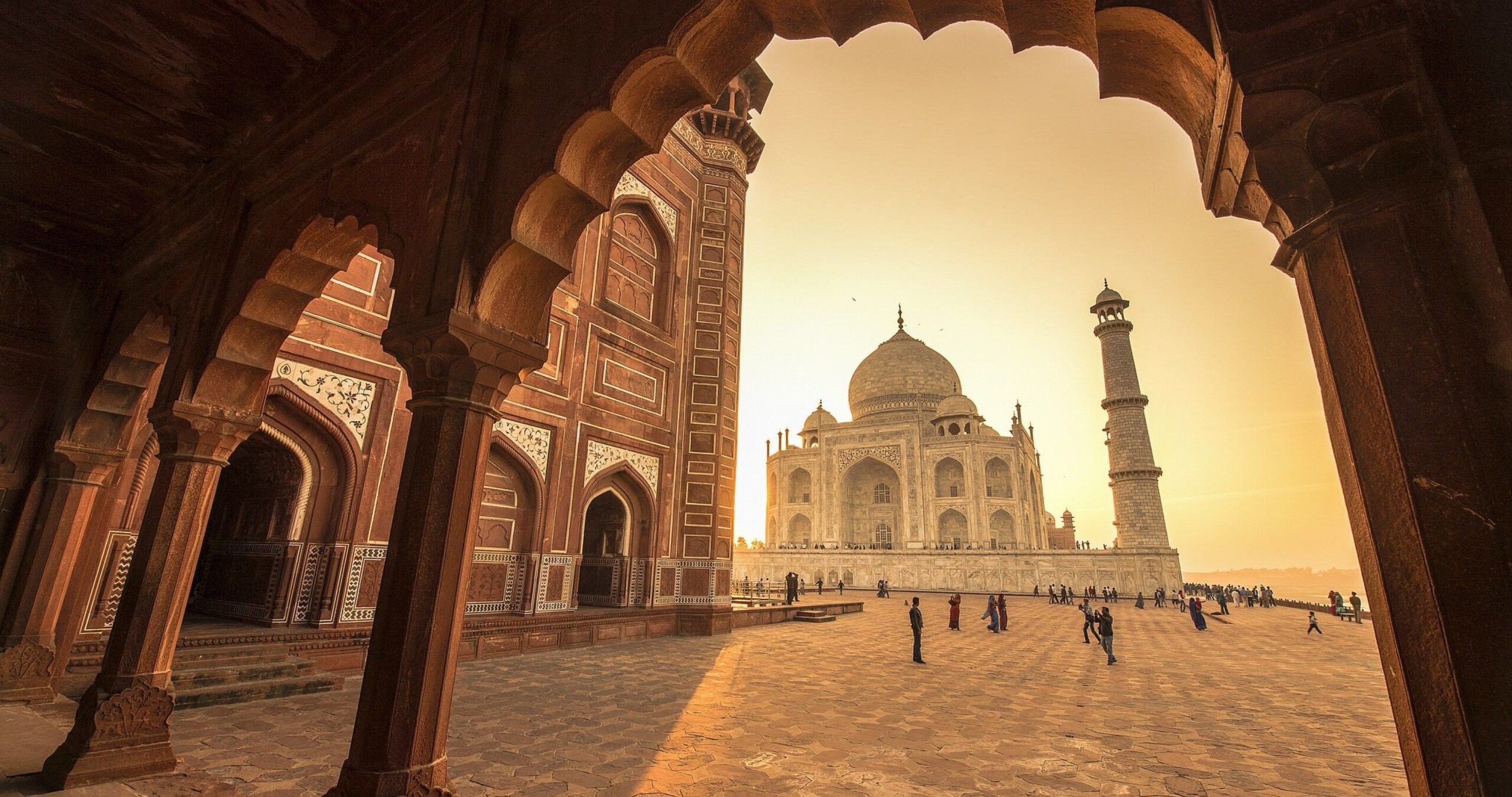
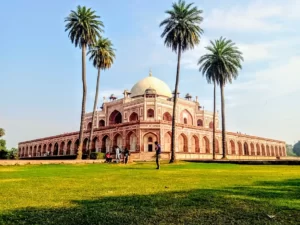
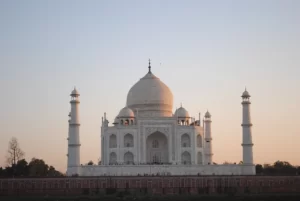
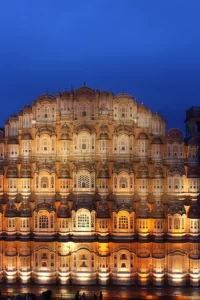
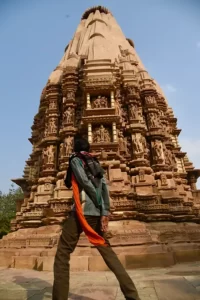
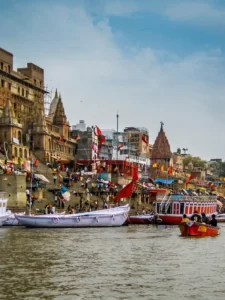
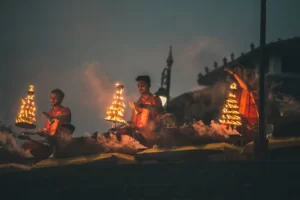




Reviews
There are no reviews yet.